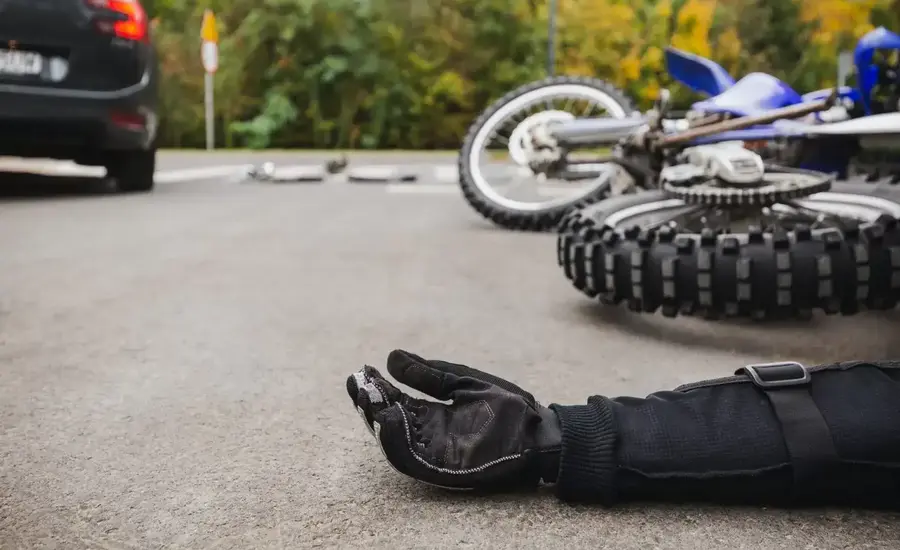The moments following a motorcycle collision can often be chaotic and filled with confusion and stress. However, staying as calm as possible is crucial to prioritize safety and gather necessary information. The first step you should take is to move to a safe location, away from traffic, if you can do so.
Immediate Actions to Take After a Motorcycle Collision
Quickly assess your condition and the condition of others involved. Check for injuries and ensure that everyone is out of harm’s way. Emergencies demand swift action, so dial emergency services immediately to report the accident and request medical assistance.
It is essential not only for your safety but also for legal reasons. Having a professional, such as a Lincoln motorcycle accident lawyer, can provide invaluable support during these stressful moments, advising you on the legal steps to take and helping ensure everything is documented correctly.
Key Takeaways
- Understanding your rights and the steps to take immediately after a motorcycle collision can significantly impact your claim’s success.
- Documenting the incident and seeking medical attention are critical first steps.
- Legal guidance and thorough records can facilitate a smoother claims process.
Seek Medical Attention
If you feel injured, seeking medical attention immediately after a collision is vital. Some injuries, such as concussions or internal bleeding, may not be immediately apparent but can have serious consequences if left untreated. A thorough medical examination will document all your injuries, even those you might not yet feel.
This examination and its resultant medical reports are indispensable when filing a claim, providing concrete evidence of injuries sustained due to the accident. Even minor injuries can develop into significant health issues if not treated promptly.
Medical professionals can give you complete treatment and ongoing care, requiring documentation for your claim process. Your medical records are essential evidence for proving the accident’s impact on your health, making your claims process more straightforward and substantiated.
Gather Information and Evidence
Thorough documentation is a cornerstone of a strong motorcycle collision claim. Immediately after ensuring that all parties are safe and medical assistance is on the way, focus on gathering evidence from the scene. Take comprehensive photos of the accident scene, including the position of the vehicles, any skid marks on the road, and overall road conditions.
These images can provide critical context for the accident. Don’t forget to take close-up photos of the damage to your motorcycle and any visible injuries. If there are any witnesses, gather their contact details, request that they stay, and give their account to the police. Statements from impartial witnesses can significantly bolster your claim.
Exchange necessary information with the other driver, including insurance details, but avoid discussing fault at the scene. Every piece of gathered evidence will play an integral role when you file your claim, helping to reconstruct the incident accurately and substantiate your version of events.
Notify Your Insurance Company
Notifying your insurance company about the collision at the earliest opportunity is crucial. While reporting the accident, provide a detailed yet strictly factual account. Avoid making statements interpreted as admitting fault, as these could undermine your claim later on. Stick to the facts, such as the collision’s location, time, and nature, and share any relevant contact and insurance information.
Detail any immediate observations about damages and injuries, but do not speculate. Insurance companies often record these initial conversations, and saying the wrong thing could harm your case. Prompt and precise reporting helps initiate your claim process efficiently and sets the stage for future communications.
Keep Detailed Records
Maintaining a comprehensive file of all documents related to the accident is essential for a successful claim. This file should include everything from medical bills and repair receipts to police reports and correspondence with insurance companies. Everything documented should be organized chronologically to ease access and review.
These records serve several purposes: they help track expenses, provide proof of your claims, and allow you to prepare better for any legal proceedings.
Comprehensive records ensure no detail is overlooked and every aspect of your experience is documented. Having all this information readily available will significantly support your case and can simplify and streamline the claims process.
Understand the Legal Process
Being well-versed in the legal landscape surrounding personal injury claims can make a world of difference to your situation. Each personal injury claim follows specific legal guidelines and timelines that need to be respected to ensure a successful outcome.
You can start by looking into resources explaining the steps in filing a personal injury claim. This knowledge will empower you to navigate the process more efficiently, adhere to all necessary procedural requirements, and avoid common pitfalls that could jeopardize your claim.
Consult with a Legal Professional
Given motorcycle collision claims’ complexity and potentially high stakes, securing legal expertise can be a game-changer. A specialized personal injury lawyer will guide you through the treacherous waters of legalities, insurance negotiations, and court procedures if necessary.
An attorney with experience in motorcycle accidents can offer tailored advice specific to your circumstances, represent your interests in negotiations, and ensure you receive the compensation you deserve. The right legal representation improves your chances of a favorable outcome and provides peace of mind, allowing you to focus on recovery. In contrast, your legal team handles the intricacies of your case.
Stay Informed About Local Regulations
Different states have laws and regulations governing traffic accidents, including unique stipulations for motorcycle collisions. Understanding these local regulations is crucial for anyone involved in an accident.
For instance, Lincoln, Nebraska, has specific legal requirements that could impact your claim. Familiarizing yourself with these local laws can help you navigate the legal landscape more effectively and avoid pitfalls and delays that could arise from non-compliance.
Local legal advice can be highly beneficial, particularly as rules governing things like fault determination, compensation limits, and claim filing procedures can vary significantly from one jurisdiction to another. Staying informed about local regulations ensures you can proceed with your claim smoothly and successfully.
